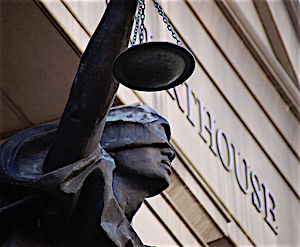U.S. Supreme Court Upholds Aspects of President’s Travel Ban

Despite several lower-court losses, President Trump has won a modest victory regarding his controversial travel ban. The Supreme Court ruled on Monday that parts of the executive order aren’t problematic.
If an individual from one of the six muslim-majority countries affected by the travel ban can demonstrate a close affiliation with a school or company then that individual is exempt, but the ban will apply to those who can’t demonstrate such ties. The court will here full arguments on the case when they return from recess.
The President’s travel ban makes civil right’s activists and humanists bristle with anger. In an age when man people from muslim majority countries face persecution, from ISIS, from war, and from the machinations of unstable governments, the travel ban is seen as unnecessary, ineffective, and cruel.
Learn more about the travel ban (New York Times)
Photo: By Steve Petteway, Collection of the Supreme Court of the United States (Roberts Court (2010-) – The Oyez Project) [Public domain], via Wikimedia Commons


